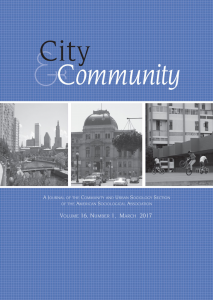Health and new normals
A recent article in The Conservation – To be ill is to be human: why normalising illness would make it easier to cope with – authors Gill Hubbard and Claire Wakefield argue that sickness remains the great unsaid, an object and state of denial, a source of fear and cause of stigma. Because of this, we tend to stay quiet when we fall ill, often keeping it hidden and coping alone. This may make it far harder to cope when we (or someone we know) becomes ill. This is a problem for numerous reasons, not least because chronic illnesses are now pervasive and likely to touch all of us at some point in our lives. The potential solutions to this conundrum are multiple, but it is here that I depart quite sharply from the authors’ assertion that one route should be to ‘position ill health as the new normal’.
From the standpoint of acceptance and tolerance it makes complete sense to work towards normalising ill health. Yet from a normative standpoint, it seems exceptionally defeatist and, if I’m really honest, more than a bit depressing. Of course, when people find themselves facing a terminal diagnosis, denial may function as a form of coping, but it can ultimately be detrimental. I’m often brought back to Lionel Shriver’s harrowing 2010 book So Much For That, and it seems particularly relevant here.
In it, each chapter starts with a tally of the money left from the central protagonist’s $1m sale of his company. As his wife’s complex cancer progresses, the bank account rapidly drains as the true financial and emotional cost of empty hope and medical promise painfully reveals itself. While the book is primarily a raging critique of the US medical system, it is also a powerful vantage point from which to consider the experience of illness and the denial of its ultimate finality. So, would positioning ill health as the new normal have changed this?
In situations where people’s illnesses may not kill them, but will significantly diminish their quality of life, then what should a new normal be? I’ve long written about chronic disease, its risk factors and politics, but have not often paused to consider what “normal” is or should be. Looking back at a paper I wrote in 2008 for Sociology of Health and Illness about the corporate social responsibility strategies undertaken by the food and drink industry offers an opportunity to do just that.
I wrote the paper in 2007, shortly after finishing my PhD and a few years after Time Magazine had declared 2004 the “Year of Obesity”. It was a time when the climb in obesity rates seemed inexorable and moral panic abounded. Yet, in the decade since then, obesity rates seem to have stabilised in both the US and UK – although they continue to rise across many countries in the global south – and the landscape of health and wellbeing has shifted quite profoundly.
In the paper I explored the trend of global food and drink companies of reworking brand lines to “healthier” formulations and the simultaneous positioning of these new products as part of the solution to obesity. In this worldview, obesity is an individual problem, caused by an unhealthy diet (not specific, unhealthy processed foods) and a lack of physical activity. The result of this narrative strategy was to blame the poor choices of individuals for their weight and any resultant poor health. Of course this strategizing is still rampant, but much has changed since 2007.
When I wrote the paper, I could not have foreseen the extent of the cult of “wellness” that would grip so many, while excluding so many more. I did not foresee that food companies would shift from making “healthier” versions of clearly unhealthy products, to just buying up smaller, niche brands far more clearly associated with quality and authenticity. I did also not foresee the rise of Instagram and its incessant celebration of “clean” food, “dirty” food, lifestyle celebrities, strength, workout regimens and results, and the public display of weight loss. To me Instagram is a wormhole of potential unhappiness, but for students on my undergraduate health course, discussions about social media bring them to life in a way that Foucault never does. It is easy to discount these wellness trends as fleeting and insignificant, but they are incredibly important to those who follow numerous lifestyle bloggers and take their dietary and exercise advice, often at significant financial cost in food bills and gym memberships. To them, the pursuit of wellness is the new normal, not ill health.
Of course quinoa and cashew milk cannot overcome genetic fate or the health outcomes of pure chance, but when taken in moderation, wellness has a positive role to play in driving lifestyle trends and consumer awareness. However, it may also reinforce pervasive societal divides. At a time of rising inequality, it is perhaps inevitable that the ‘promise of great health’ has become a new normal for some rather than for all. Hope and aspiration may be great for business, but they don’t stop illness being any less of a shock if and when it strikes. We inhabit multiple worlds of multiple “normals” and humans naturally gravitate towards optimism, however cruel this can end up being. Denying people the hope of good health is duplicitous and consigning us to the inevitable fate of ill health should really be resisted.
Dr Clare Herrick is a Reader in Human Geography at the Department of Geography, King’s College London






1540-6210/asset/society_affiliation_image.gif?v=1&s=812a48e1b22880cc84f94f210b57b44da3ec16f9)
